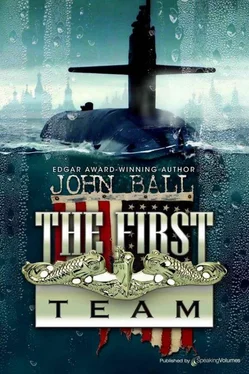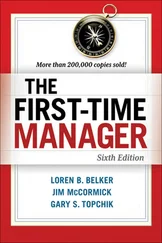Джон Болл - The First Team
Здесь есть возможность читать онлайн «Джон Болл - The First Team» весь текст электронной книги совершенно бесплатно (целиком полную версию без сокращений). В некоторых случаях можно слушать аудио, скачать через торрент в формате fb2 и присутствует краткое содержание. Год выпуска: 2013, Жанр: Триллер, на английском языке. Описание произведения, (предисловие) а так же отзывы посетителей доступны на портале библиотеки ЛибКат.
- Название:The First Team
- Автор:
- Жанр:
- Год:2013
- ISBN:нет данных
- Рейтинг книги:5 / 5. Голосов: 1
-
Избранное:Добавить в избранное
- Отзывы:
-
Ваша оценка:
- 100
- 1
- 2
- 3
- 4
- 5
The First Team: краткое содержание, описание и аннотация
Предлагаем к чтению аннотацию, описание, краткое содержание или предисловие (зависит от того, что написал сам автор книги «The First Team»). Если вы не нашли необходимую информацию о книге — напишите в комментариях, мы постараемся отыскать её.
Student protesters are being slaughtered in the Midwest.
The Jewish pogroms have begun.
You are now living in Soviet — occupied America!
One nuclear submarine and a handful of determined patriots against the combined might of Russia and Soviet-occupied America… The Most Explosive and Gripping “What If” Novel of Our Time!
First published January 1971
The First Team — читать онлайн бесплатно полную книгу (весь текст) целиком
Ниже представлен текст книги, разбитый по страницам. Система сохранения места последней прочитанной страницы, позволяет с удобством читать онлайн бесплатно книгу «The First Team», без необходимости каждый раз заново искать на чём Вы остановились. Поставьте закладку, и сможете в любой момент перейти на страницу, на которой закончили чтение.
Интервал:
Закладка:
The men got up and started down the pier. The commander looked about and saw that the number of enemy guards had been somewhat decreased; a half dozen were still in evidence as well as the omnipresent gun crew, but there was no evidence that they were more than casually interested in what was going on. They stood and waited, and would continue to do so until they were given orders to the contrary.
Apparently Kepinsky was satisfied with the explanation he was given; he even looked a trifle worried when he rejoined the commander. “It is ungood,” he said.
“I don’t like it, either, but I have confidence in our boys,” the commander responded. Wearily he raised his arms and rubbed his fingers through his hair.
Morrison recrossed the brow and went down the rear hatch. As he did so the radiation detector suddenly showed a gain and a red light mounted on the dial went on. It remained that way for several seconds and then subsided. Kepinsky moved back a few feet but stayed where he could keep a careful watch over the instrument. He had had experience once with a leak in a nuclear pile in his own country and the results had been disastrous. There was, however, no way that he could leave; he remained because he had to, and waited.
The fresh spurt of radiation produced a noticeable reaction from the guards who remained on the pier. Apparently they were not sure what was happening, but it was obvious that they were suddenly afraid. One by one they drew back as far from the submarine as they dared. They could not leave their posts and they knew it, but self-protection was uppermost in their minds.
None of them heard the slight noise which came from the opposite side of the ship when the lead diver, his face and hands blackened, opened the sail door as quietly as he could and looked out carefully into the night. The South Pier was sufficiently far away to give him a measure of protection. With practiced care he slipped through the opening, crossed the few feet of curved decking, and slid all but silently into the water.
Five seconds later the second man followed. In addition to his SCUBA gear he had a sack of tools. He too slid into the water so expertly that there was a minimum of noise or movement to betray him. The two men below the surface swam carefully, one behind the other, toward the stern. When they reached the propeller they waited until the third member of the team joined them, then with the aid of a carefully shielded faint light they tried to measure the extent of the task before them.
The propeller itself was formidable: it was more than nineteen feet in diameter and dwarfed the men who hovered near it appraising the substantial chain which had been woven around it and the rudder post a half dozen times. One end reached over in a lazy underwater arc to the base of the pier.
The lead diver followed it quietly and invisibly until he saw how it had been secured. He did not touch it; instead, using a tiny light of his own, he studied it carefully until he saw two thin electrical wires which had been fastened with insulating staples to the back of the post to which the chain was attached.
He maneuvered into the limited space behind the post and with his diver’s knife removed three of the staples. One at a time he very carefully scraped the wires completely around for a distance of four inches. When he was entirely satisfied with his work he used the limited amount of available play to wind them tightly together. He was careful not to put too much strain on the joint until he was absolutely sure that he had a secure electrical connection. Then he swam back to see how his two companions were doing.
The job of putting the chain around the propeller had been crudely accomplished, probably because the men who had done it did not expect that any inspection would be made of their work. It had simply been wound around the propeller blades and the rudder post enough to insure the fact that the drive system was immobilized until it was removed. Silently the underwater trio conferred by signs. The head diver held up two fingers; each of his companions showed three. He accepted their verdict; he swam to the side of the submarine and with the aid of his light looked at his underwater watch. He waited ninety seconds, then at the exact five-minute interval he tapped very gently against the pressure hull.
He was answered almost at once by four evenly spaced knocks which could have been someone at work in another part of the ship. A full minute of silence passed; sixty measured seconds to break the continuity in case anyone had taken note of the audible signals. Then the diver tapped twice, waited, then tapped three more times.
A single knock acknowledged the message; as soon as he had heard it the diver swam away.
Inside the hull the crewman who had been listening went forward to find the captain as rapidly as he was able. “Sir,” he reported, “I’ve got the word from the Seals. The screw is fouled, but they estimate that they can clear it within three hours.”
Although he already knew the time to the minute the captain consulted his watch once more, then turned to his exec who was close by. “We’ll gamble on that — we’ve got to. Pass the word to the light-up crew to get started and to make the best time that they can.” He knew that the job would take close to six hours, and that it was an extremely critical operation which could not be hurried beyond a certain point.
The men in the reactor compartment were anxiously awaiting that order. The three who were assigned to this important duty knew that from the moment they were authorized to start, time would be vital and that none of it could be wasted. The dropped isotope would mask the increased radiation level; the cooling water was another matter, but there was a cover for that — at least so they had been informed. Their job was to get the pile going and to ignore everything else.
On the dock Kepinsky was having second thoughts. He knew the acute danger that a mishap in the nuclear pile represented, but to remain on the pier without making a personal inspection could be interpreted as negligence. He had been rationalizing, he realized that, and danger or no danger, he would have to go below. If some eighty Americans could brave the peril no excuse would be accepted for failure on his part to make a personal inspection and determine what was going on. He spoke to the commander. “I wish a suit,” he said. “At once I myself going to see.”
The burly man who ran the shipyard looked at him and shook his head. “All right, it’s your neck. I’ll get someone.” He walked to the end of the brow and shouted.
It took a moment or two before he was heard, then Morrison came up on deck. The commander motioned him to come onto the dock and then waited until the man had removed his head covering. “Mr. Kepinsky has decided to make a personal inspection of the interior of the hull,” he said. “He wants a suit and would like to go on board as soon as he can.”
“We don’t have any spares,” Morrison answered. “I’ll have to get one of my men up and they can change here on the dock.” He went back on board and disappeared down the hatch once more. He returned within a minute followed by another man, then came across the short brow with enough evidence of speed to keep Kepinsky satisfied. Without being instructed the man in the decontamination suit began to remove the protective clothing; he was obviously unhappy, but carried on because he had no choice.
It was some minutes before Kepinsky was ready to enter the hull. In that interval of time a considerable change had taken place within the submarine. The three suits worn by the diving team had been carefully hidden and the team had been warned by an emergency signal. The slight sounds coming from the extreme rear of the ship ceased almost at once. The isotope which Chief Summers had placed had already been moved to a suitable and difficult-of-access position in the reactor compartment where it continued to pour out its raw radiation, no less deadly because it was invisible and unheard. Within two minutes all superficial evidence of light-up had been removed and even to an expert eye the environment of an authentic emergency was close to complete. If the unwelcome visitor brought any kind of a Geiger counter or other instrument with him, it would give all of the properly misleading answers.
Читать дальшеИнтервал:
Закладка:
Похожие книги на «The First Team»
Представляем Вашему вниманию похожие книги на «The First Team» списком для выбора. Мы отобрали схожую по названию и смыслу литературу в надежде предоставить читателям больше вариантов отыскать новые, интересные, ещё непрочитанные произведения.
Обсуждение, отзывы о книге «The First Team» и просто собственные мнения читателей. Оставьте ваши комментарии, напишите, что Вы думаете о произведении, его смысле или главных героях. Укажите что конкретно понравилось, а что нет, и почему Вы так считаете.












